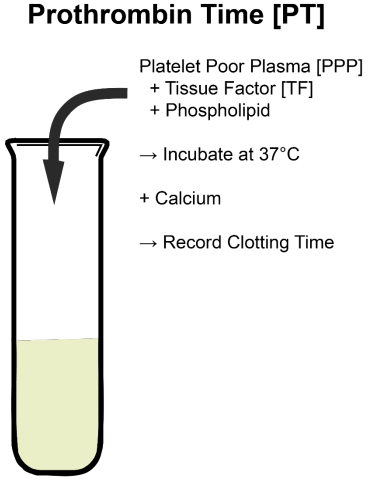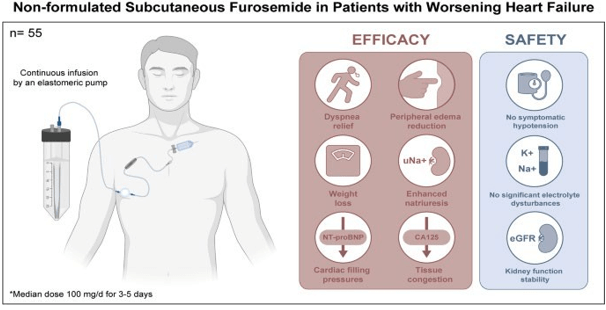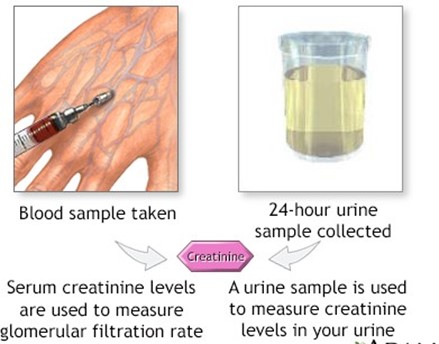A nurse is caring for a client who has a prescription for warfarin. Which of the following laboratory tests should the nurse monitor?
Triiodothyronine
Blood urea nitrogen
Arterial blood gases
Prothrombin time
The Correct Answer is D
Prothrombin time.
Explanation:
When a client is prescribed warfarin, monitoring the prothrombin time (PT) and the International Normalized Ratio (INR) is crucial. Warfarin is an anticoagulant medication that affects the clotting ability of the blood by inhibiting vitamin K-dependent clotting factors. Monitoring the prothrombin time and INR helps determine the client's blood's ability to clot and the appropriate dosage of warfarin to maintain the desired therapeutic range.
Option a (Triiodothyronine) is a thyroid hormone and is not directly related to warfarin therapy.
Option b (Blood urea nitrogen) is a measure of kidney function and is also not directly related to warfarin therapy.
Option c (Arterial blood gases) is a measure of oxygen and carbon dioxide levels in the blood and is not related to warfarin therapy.

Nursing Test Bank
Naxlex Comprehensive Predictor Exams
Related Questions
Correct Answer is B
Explanation
b. Increased urinary output.
Furosemide is a diuretic medication that helps remove excess fluid from the body by increasing urine production and output. In a client with heart failure, one of the indicators that the medication is effective is an increase in urinary output. This can help reduce fluid buildup in the body, which can improve symptoms of heart failure.

Correct Answer is C
Explanation
A 24-hour creatinine clearance test is used to evaluate how well the kidneys are functioning by measuring the amount of creatinine in the blood and urine over a 24-hour period. During the test, the client is asked to discard their first-morning void and then collect all urine for the next 24 hours.
Option A is incorrect because a protein-rich diet can affect the creatinine levels in the urine, which can result in inaccurate test results. Therefore, the nurse should advise the client to avoid a protein-rich diet during the collection period.
Option B is incorrect because blood glucose levels are not relevant to a 24-hour creatinine clearance test. Therefore, the nurse should not ask the client to record their blood glucose level each time they void.
Option D is incorrect because using an antiseptic towel to cleanse the perineal area can also affect the test results by introducing contaminants into the urine sample. Therefore, the nurse should advise the client to cleanse the perineal area with soap and water or an alcohol wipe.

Whether you are a student looking to ace your exams or a practicing nurse seeking to enhance your expertise , our nursing education contents will empower you with the confidence and competence to make a difference in the lives of patients and become a respected leader in the healthcare field.
Visit Naxlex, invest in your future and unlock endless possibilities with our unparalleled nursing education contents today
Report Wrong Answer on the Current Question
Do you disagree with the answer? If yes, what is your expected answer? Explain.
Kindly be descriptive with the issue you are facing.
